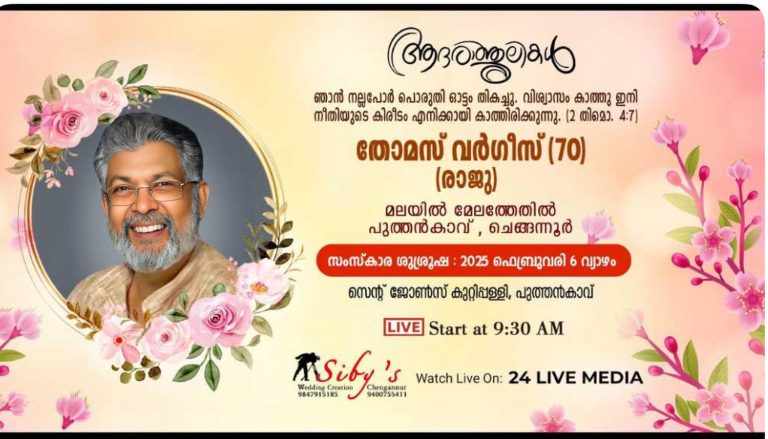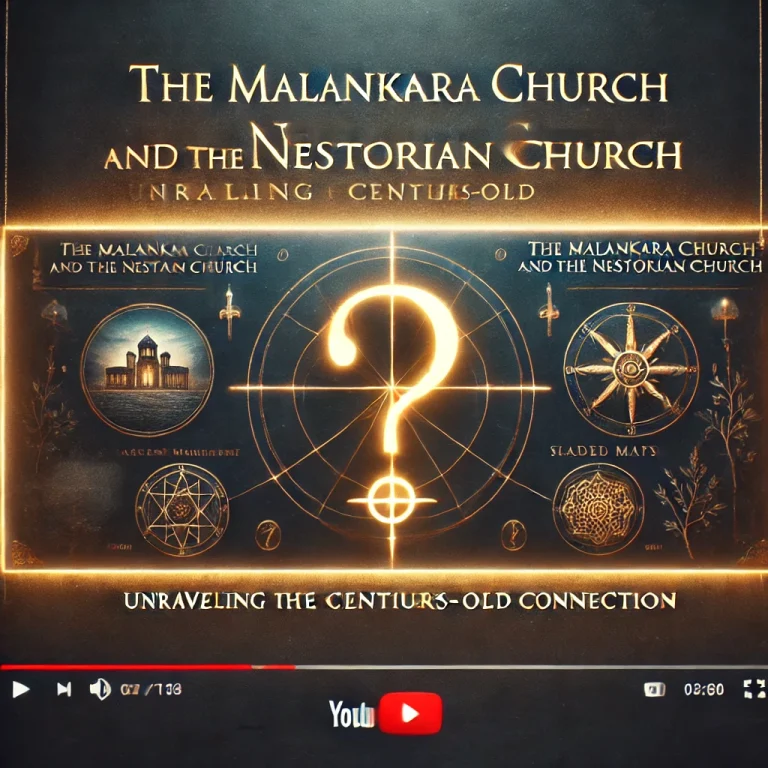
Bible Study: Practicing Orthodoxy in Our Daily Lives
By :Fr.Johnson Punchakonam
Theme: Embracing and Practicing Orthodoxy
Objective:
To help young believers understand what it means to live according to orthodox Christian beliefs, why it’s important, and how they can incorporate these beliefs and practices into their daily lives.
1. Introduction to Orthodoxy (10 mins)
Key Verses: 2 Thessalonians 2:15, 1 Timothy 6:20
Bible Study: What is Orthodoxy?
Introduction by the Priest
Hello, everyone! Today, we’re going to talk about a big word: Orthodoxy.
Let’s break it down and see what it means for us as Christians.
What Does “Orthodoxy” Mean?
Orthodoxy comes from two Greek words: ortho, which means “correct” or “right,” and doxy, which means “belief.”
Put together, it means “right beliefs.” For Christians, orthodoxy is about holding on to the beliefs and teachings that the early church taught and that are written in the Bible.
Why Does Orthodoxy Matter?
God has given us the Bible to show us what is true and how to live.
The teachings in the Bible have been passed down from the early church, and they help us stay close to God.
When we hold on to these beliefs, it helps us understand who God is and who we are supposed to be.
Orthodoxy keeps us grounded in a world where many different ideas are competing for our attention.
What are Some Examples of Orthodox Beliefs?
Here are a few key teachings in Christian orthodoxy:
• God is a Trinity: God exists as Father, Son, and Holy Spirit.
• Jesus is God’s Son: Jesus is fully God and fully human. He died and rose again to save us
• The Bible is Our Guide: We believe the Bible is God’s Word and that it teaches us what is true.
Living Out Orthodoxy
Practicing orthodoxy isn’t just about believing the right things; it’s about living them out. Here are some ways we can live out our beliefs:
• Pray and Read the Bible: These habits keep us close to God and remind us of His truth.
• Go to Church Regularly: Being in church helps us learn and grow with others who share our beliefs.
• Follow God’s Commands: This means being kind, honest, and loving, even when it’s hard.
Staying Strong in Your Faith
There will be times when people around us may not understand or may disagree with our beliefs. That’s okay. Orthodoxy gives us a strong foundation, so we can stay true to God, no matter what.
Conclusion
Orthodoxy is about believing and practicing what God has shown us through the Bible and the early church. Let’s commit to holding on to these beliefs and letting them guide us every day.
Prayer
Let’s pray together that God will help us stay strong in our faith and live out these beliefs with love and courage.
Group Activity:
Ask the group to share their understanding of “orthodoxy.” What comes to mind when they hear the term? How might orthodoxy apply to areas beyond just religion?
2. Bible Study: The Importance of Orthodoxy in Christianity
Opening Prayer and Key Verses
Let’s begin with a prayer, asking God to help us understand His truth and hold on to it with love and courage. Today, we’ll look at two key verses:
• Jude 1:3 – “…contend for the faith that was once for all delivered to the saints.”
• Ephesians 4:14 – This verse reminds us not to be tossed around by every new idea but to stay strong in our faith.
Discussion Points
1. Biblical Basis for Orthodoxy
The Bible tells us to “contend for the faith” (Jude 1:3). This means we should hold on to the truths of our faith, even when it’s hard. These truths were given to us long ago through the Bible and the early church. We are called to carry these beliefs forward and pass them down, staying true to what God has shown us.
2. Orthodoxy vs. Popular Culture
Sometimes, what we believe as Christians may seem different from what is popular or “trendy” in the world around us. Today’s culture is always changing, but God’s truth stays the same. Orthodoxy helps us stay grounded in what is right and true, even when the world has different ideas.
Illustration:
Think of orthodoxy as an anchor. Imagine a ship in the middle of a stormy sea with big waves all around. The anchor keeps the ship from drifting away. Orthodoxy is like that anchor for our faith. It holds us steady, helping us stay true to God’s teachings when things around us are uncertain or constantly changing.
Group Discussion Questions
Question 1:
• What challenges do you think young Christians face today in holding to orthodox beliefs?
• Think about school, social media, or even conversations with friends. Are there moments when your beliefs might seem different or even strange to others?
Question 2:
• How can we lovingly stand firm in our beliefs while engaging with a culture that may see things differently?
• Let’s discuss ways we can stay true to our beliefs while still being respectful and loving to others who may think or believe differently.
Closing Thought
Orthodoxy isn’t about following rules; it’s about staying connected to God’s truth. Even when the world changes, God’s word doesn’t. When we hold on to orthodox beliefs, we are choosing to stay anchored in God’s love and truth.
Closing Prayer
Let’s close by asking God to help us hold on to His truth and live it out in a way that shows love and respect to everyone around us.
3. Bible Study: How Jesus Modeled Orthodoxy
Opening Prayer and Key Verses
Let’s begin with a prayer, asking God to open our hearts to understand how Jesus set an example for us in holding to truth. Today’s key verses are:
• Matthew 5:17-19 – Jesus said He didn’t come to destroy the law but to fulfill it, showing respect for the teachings God had given.
• John 14:6 – Jesus declared, “I am the way, the truth, and the life,” showing that His teachings are the ultimate truth.
Discussion Points
1. Jesus and Tradition
In Matthew 5:17-19, Jesus says He didn’t come to destroy the teachings of the law but to fulfill them. He respected and followed the law of Moses, the same Scriptures that the people of His time knew well. However, Jesus didn’t just follow these teachings; He also deepened their meaning. He showed people how to live out these teachings with love, mercy, and faithfulness.
Example: Think of when Jesus taught about loving your enemies or helping those in need. He wasn’t changing God’s law; He was showing us how to live it fully.
2. Truth and Authority
In John 14:6, Jesus says, “I am the way, the truth, and the life.” Jesus is the source of truth, and His teachings are unchanging. Following Him means we believe that His words are true, even when the world might say otherwise. Jesus was never afraid to speak the truth, even if it wasn’t popular. He called people to follow God’s way, even when it went against what others were doing.
Example: Jesus spent time with people others looked down on, like tax collectors and sinners. He showed that God’s love and truth were for everyone, even if society didn’t agree.
Reflection and Group Discussion
Reflection Question
• Think about a time when you felt pressure to compromise or hide your beliefs. How did it feel? What made it hard to stand firm?
Discussion Question
• How can Jesus’ example help us stand firm in our beliefs today?
• Jesus stayed true to God’s word and God’s love, even when it was difficult. What are some ways we can do the same in our lives?
Closing Thought
Jesus showed us how to live in truth and love. When we follow His example, we learn to respect God’s word, love others, and stay true to our beliefs, even when it’s not easy.
Closing Prayer
Let’s end by praying for courage to follow Jesus’ example, holding on to God’s truth and showing it in our actions every day.
4. Bible Study: Practicing Orthodoxy in Everyday Life
Opening Prayer and Key Verses
Let’s open with a prayer, asking God to help us live out our faith in practical ways every day. Here are our key verses:
• Romans 12:2 – This verse reminds us not to be conformed to the world but to be transformed by renewing our minds.
• 2 Timothy 1:13-14 – Paul encourages us to hold to sound teachings with faith and love, keeping the truth safe within us.
Discussion Points
1. Prayer and Worship
Prayer and worship are essential practices for staying close to God. They connect us with God, helping us stay rooted in our beliefs. Going to church and worshiping with others brings us together with believers who encourage us and strengthen our faith.
2. Reading Scripture Daily
The Bible is the primary source of truth for our faith. When we read and study Scripture, we align our lives with what God wants for us. Daily Bible reading helps us understand His teachings and gives us guidance for our decisions and actions.
3. Following Christian Morality
Orthodox Christianity isn’t only about beliefs; it’s also about how we live. Practicing kindness, honesty, purity, and love is how we show our faith to others. These values help us make choices that reflect our commitment to God.
Practical Tips for Practicing Orthodoxy
Here are some practical ways to make orthodoxy a part of our everyday lives:
1. Start and End Your Day with Prayer
Take a few minutes in the morning to thank God and ask for guidance for the day. At night, reflect on your day, thank Him, and ask for help where you need it.
2. Bible Reading Plan
Pick a reading plan that works for you. There are many Bible apps, like YouVersion, that have daily plans. Even reading a few verses a day can make a difference.
3. Stay Connected with Fellow Believers
Attending church regularly helps keep our faith strong. Consider joining a small group or youth group, where you can discuss challenges and encourage each other.
4. Seek Wisdom Before Making Decisions
Before making a choice, ask yourself, “Does this line up with what God teaches?” Taking a moment to think this way can help you stay true to your beliefs.
Group Activity
Small Group Exercise
Let’s split into small groups. Each group will create a simple daily plan that includes prayer, Bible reading, and one act of kindness or love. Also, discuss any obstacles you might face—like distractions or busy schedules—and brainstorm ideas to overcome them.
Reflection Questions for Each Group
• What challenges might come up when you try to stick to this plan?
• How can you support each other in overcoming these challenges?
Closing Thought
Practicing orthodoxy in everyday life doesn’t mean perfection; it’s about commitment and intention. When we make time for prayer, Scripture, and living out our values, we grow closer to God and stronger in our faith.
Closing Prayer
Let’s end with a prayer, asking God to guide us in practicing these habits and to help us grow in love, faith, and commitment to Him each day.
Bible Study: Staying Strong in Orthodox Beliefs
Opening Prayer and Key Verses
Let’s start with a prayer, asking God to strengthen us in our beliefs and guide us in wisdom. Here are our key verses:
• 1 Corinthians 16:13 – “Be on your guard; stand firm in the faith; be courageous; be strong.”
• James 1:5 – This verse encourages us to seek wisdom from God, who gives it generously to those who ask.
Discussion Points
1. Guarding Against False Teachings
In today’s world, we hear many different ideas, some of which sound appealing or popular but may not align with Christian teaching. The Bible encourages us to be cautious and discerning. Staying rooted in orthodox beliefs helps us avoid teachings that might lead us away from God’s truth.
Example:
Imagine you’re listening to a friend or someone online who shares an idea that seems good at first but contradicts what you know from the Bible. Recognizing these moments and relying on what God has taught us keeps us from being swayed by ideas that could weaken our faith.
2. Seeking God’s Wisdom
Staying strong in orthodox beliefs means asking God for wisdom. It’s not always easy to know what’s true or how to respond to others, especially when we’re faced with different opinions or beliefs. James 1:5 tells us that if we ask God for wisdom, He will generously provide it. This is an amazing promise that we can rely on as we try to live according to our faith.
Reflection and Group Discussion
Reflection Question
• Think about situations where you have felt challenged by others’ beliefs. How can seeking God’s wisdom help you respond in those moments?
Discussion Question
• How can we respectfully respond to people with different beliefs while staying true to our own?
• We’re called to be firm in our faith, but also to show love and respect to everyone. Let’s discuss ways we can respond with kindness and humility while holding firmly to what we believe.
Closing Thought
Staying strong in orthodox beliefs means being prepared, discerning, and always open to God’s wisdom. When we rely on God’s guidance, we can face any challenges with confidence, respect, and love.
Closing Prayer
Let’s close by asking God to give us strength to stand firm in our beliefs and to grant us wisdom to respond to others in love and truth.
Bible Study: Summary and Application of Orthodoxy
Opening Prayer
Let’s start with a prayer, asking God to help us apply everything we’ve learned about orthodoxy in our daily lives.
Key Takeaways
1. Understanding Orthodoxy in Christianity
Orthodoxy means holding firmly to beliefs based on Scripture and the teachings of Jesus and the early church. These are not just rules; they are foundational truths that shape how we understand God and how we live.
2. Jesus as Our Model
Jesus showed us how to live according to God’s truth while respecting traditions. He followed God’s way, even when it was challenging or unpopular. By following His example, we learn to balance tradition with the unchanging truths of God’s Word.
3. Living Out Orthodoxy Every Day
Practicing orthodoxy isn’t only about believing; it’s about doing. This means:
• Prayer: Staying connected to God through daily conversation.
• Bible Study: Knowing what the Bible teaches so we can live according to God’s wisdom.
• Church Fellowship: Building relationships with other believers who encourage us.
• Moral Integrity: Making choices that reflect God’s love and holiness in our actions and interactions.
Group Challenge
This week, let’s each choose one specific action to apply. Here are a few ideas:
• Read a chapter of the Bible each day: Let God’s Word guide you and shape your decisions.
• Pray every morning and night: Ask for guidance, strength, and wisdom.
• Share your faith with someone: Look for an opportunity to tell a friend about what you believe or invite them to church.
Think about which of these actions will help you grow closer to God and deepen your faith. Write it down or tell a friend in the group to help keep each other accountable.
Closing Thought
Living out orthodoxy is about following Jesus, standing firm in our faith, and letting our actions reflect what we believe. It’s a journey, and each step we take brings us closer to God.
Closing Prayer
Let’s close with a prayer, asking God to give us the strength, courage, and dedication to live out our faith this week and every day.
Closing Prayer
Let’s bow our heads and come before God as we close this time together.
“Dear Lord, thank You for bringing us together to learn about the importance of holding fast to Your truth and the teachings that have been passed down through Scripture. We ask that You give each of us courage and strength to live according to Your Word, especially when it’s difficult or unpopular. Help us to stand firm in our faith, to seek Your wisdom in everything we do, and to show Your love to those around us.
When we feel pressured to compromise or struggle to understand, remind us of Your presence and Your truth. Thank You for Jesus, who showed us what it means to follow You faithfully. May we grow closer to You every day as we pray, read Your Word, and live out our beliefs. Guide us and protect us as we go forward, and help us to be a light for others.
In Jesus’ name, we pray, Amen.”
Additional Resources for Further Study
If you’re interested in learning more about living out your faith, here are some helpful resources:
• “Mere Christianity” by C.S. Lewis: This classic book is a great introduction to the basics of Christian beliefs and helps explain why we hold to these truths.
• Bible Reading Apps: Tools like the YouVersion Bible App can help you start a regular Bible reading plan. You can find daily verses, reading guides, and even devotionals that keep you on track.
• Devotional Plans on Practicing Faith: Look for devotional plans that focus on core Christian beliefs and how to apply them in everyday life. Many apps and websites offer series that can deepen your understanding of orthodoxy.
Thank you for being part of this study. Remember, holding on to orthodox beliefs isn’t just about knowledge; it’s about a relationship with God and letting His truth shape our lives. Let’s go forward with courage, love, and a commitment to live out our faith every day.




